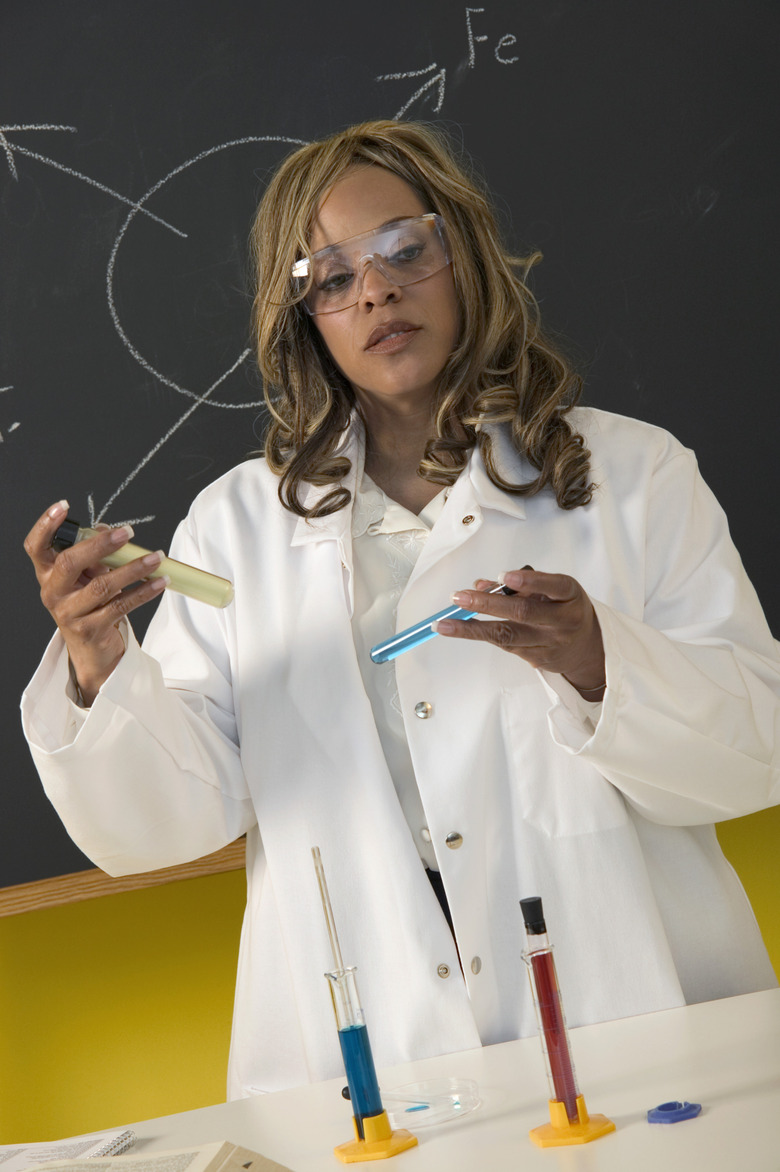What Kind Of Science Classes Do Sports Doctors Need To Take?
Sports doctors are physicians who treat sports-related injuries and diseases. They work with athletes in many different settings including clinics, hospitals, athletic clubs, colleges, universities and professional teams. Students who are interested in becoming sports doctors have to complete a four-year bachelor's degree, a four-year medical degree and two to three years of residency work in sports medicine.
Premed Requirements
Premed Requirements
All prospective sports doctors have to complete a number of premed requirements before they can apply to medical school. These requirements show admissions committees that the students have adequate basic knowledge in the natural sciences and are therefore prepared to succeed in medical school. Requirements vary across medical schools, but many require students to take two semesters or a year each of general biology, general chemistry, organic chemistry and general physics and one semester of microbiology or biochemistry.
Biology and Microbiology
Biology and Microbiology
Students who are interested in becoming sports doctors have to complete two semesters of general biology with the associated laboratory sections while they are undergraduates. Biology is the study of life, and biology 1 and 2 cover topics such as the life cycle of plants, cells and cellular functions. In addition to these courses, prospective medical school applicants should also take a semester of microbiology. Microbiology is the study of bacteria and infectious diseases, and it is an advanced biology course. Biology 1 and 2 are prerequisites for microbiology, and students who take microbiology typically take it in their second or third year of college. Students who have finished their bachelor's degrees without taking biology 1 and 2, or any of the other premed courses, typically enroll in post-baccalaureate premed programs prior to applying to medical school.
General and Organic Chemistry
General and Organic Chemistry
Another important course for all students who are interested in studying sports medicine is chemistry. Chemistry teaches students about the building blocks that make up our world including elements, atoms and compounds. In particular, prospective sports doctors have to take two semesters or one year of general chemistry and two semesters or one year of organic chemistry. Students typically take general chemistry during their second year of college and organic chemistry during the third year of college. Organic chemistry is an advanced chemistry course sequence that focuses entirely on compounds that have carbon atoms; both general biology and chemistry are prerequisites for this course. Furthermore, both general and organic chemistry include laboratory sections, which teach students how to handle chemicals and conduct basic chemistry research.
Physics and Biochemistry
Physics and Biochemistry
The most mathematically rigorous science course that prospective sports doctors have to take is physics. This is a two-semester course that covers topics in mechanics, electricity and magnetism, and requires students to solve problems using precalculus or calculus. Students typically take physics during their first or second year of college and most medical schools require students to take algebra 1 and 2, precalculus and calculus prior to taking physics 1. Prospective sports doctors who do not take microbiology as one of their premed requirements often take a course in biochemistry. Biochemistry is an advanced chemistry course that focuses on biochemical reactions, and students who take this course should have experience in both general biology and chemistry prior to enrolling. In general, students take biochemistry concurrently with organic chemistry 1 or 2.
Cite This Article
MLA
Prudchenko, Kate. "What Kind Of Science Classes Do Sports Doctors Need To Take?" sciencing.com, https://www.sciencing.com/what-kind-of-science-classes-do-sports-doctors-need-to-take-12752514/. 30 July 2013.
APA
Prudchenko, Kate. (2013, July 30). What Kind Of Science Classes Do Sports Doctors Need To Take?. sciencing.com. Retrieved from https://www.sciencing.com/what-kind-of-science-classes-do-sports-doctors-need-to-take-12752514/
Chicago
Prudchenko, Kate. What Kind Of Science Classes Do Sports Doctors Need To Take? last modified August 30, 2022. https://www.sciencing.com/what-kind-of-science-classes-do-sports-doctors-need-to-take-12752514/
